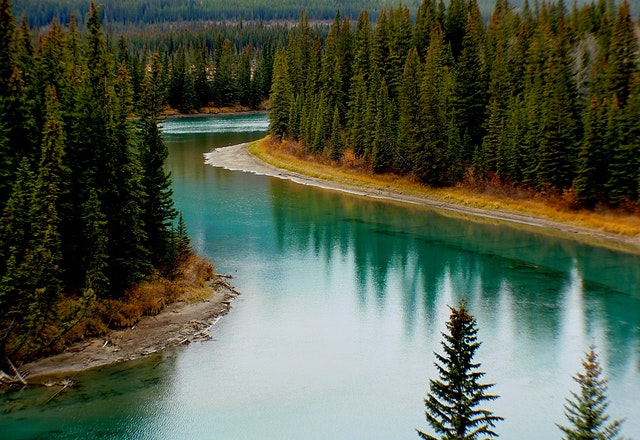Here’s the “good news” about the environment in 2021

2020 and 2021, for many, were very unpleasant in the way of the on and off-again restrictions due to the COVID-19 pandemic and the frequency of weather calamities causing devastating property damage and wide-spread issues in various countries across the globe. If we’re being honest, both 2020 and 2021 were rampant with disappointment and uncertainties, and the jury’s still out if 2022 will shape up to be the same. We’re well overdue for some good news.
With our news feeds and social medias filled with all the terrible things going on in the world, Panda7 is here to enlighten you on some of the best environment stories in 2021.
Regrowth and rewilding.
It was part of the UN’s declaration to make the 2020s the “Decade on Ecosystem Restoration” as it summoned countries world-wide to help restore over 1 billion hectares of land. This decade was intended to extend from 2021 through to 2030, with the latter year being what scientists have coined as the last possible chance to reverse devastating climate change affects to our Earth.

While the timeline may sound scary, in the last two decades we have already regrown an area larger than France. These trees could help offset significant carbon dioxide emissions, house new species. As you may already know, trees play a huge role in filtering clean air, reducing CO2, providing homes to animals and insects, and supporting communities. (Panda7 is even doing its part to plant more trees. See here for our Giveback pledge.)
2021 saw plenty of promises to help in regrowing our wilds. Jane Goodall incentive nations by pledging to plant 1 trillion trees before 2030, and 2021 saw the launch of the Mongabay Reforestation Directory, which created a database of various tree-planting projects.
Species returning and being discovered.
2021 saw a wide range of species returning from what was thought extinct, and many moving away from the endangered species list. In Canada, we saw a boom in Western monarch butterflies returning from their migration. Scientists have also discovered several new species in 2021, including a strange, fuzzy orange bat, a “Jackie Chan” gecko, and a skunk that can perform handstands. New data even suggests that we may only know up to 20% of Earth’s species.
Giant pandas, (Panda7’s namesake!) while still deemed “vulnerable” are no longer on the endangered species list. Conservation efforts have considerably boosted this bear’s fighting chance.
Lobsters, crabs, and octopuses, while never endangered to begin with, were recognized as sentient beings in 2021. Several studies showed that these creatures have the capacity to demonstrate pleasure and pain. Some animal welfare bills will only accept sentient beings which, now, these decapods and cephalopods qualify for protection under.
New technology could set net-zero agriculture in motion.
We’ve had a lot of technological advancements over the last few decades, what with AI taking the lead in enterprises for enhancing customer service, the promise of self-driving cars in the next few decades, and the swapping of paper-based menus in restaurants for QR codes. However, new technologies are demonstrating numerous benefits for the environment as well. New technology announced at COP26 was described as being able to remove atmospheric methane. Methane is a greenhouse gas, and while it occupies significantly less of our atmosphere than CO2, it has the capacity to trap much more heat and greatly contributes to global warming.
While this prospect technology could be expensive, it has the potential to break down the significant heat-trapping molecules in our atmosphere, which could play a huge role in combating climate change.
More areas are being protected.
Australia added in two marine protected areas – two parks in the Indian Ocean, which amass to a combined space of 740,000 square kilometers. Moreover, South Australia proclaimed Nilpena Ediacara National Park, an added 60,000 hectares of land, as a protected national park.
National Parks and conservation areas that are being protected are vital in helping to maintain diversity in the ecosystem, as well as providing education and cultural preservation. They are designed to be free of human interference, and so animal species and flora that live here tend to thrive.
Fossil fuel projects are being axed.
If you’re a climate activist, you already know the detrimental impact that fossil fuels can have on our environments. Many fossil fuel projects that were set up for the next few years to come were dropped in 2021. The largest gas power plant in Europe was dropped, Biden put an end to the Keystone XL oil pipeline, and Portugal quit coal. Even Shell, an oil giant, was given a court order to reduce its admissions to 45% by the year 2030 – again, that year of no return. This might not be enough to totally turn the tides on climate change, but it’s a very good start.
A brighter light for our environment in 2022.
It’s easy to get caught up in the “darkest parts” of our social media feeds and believe that there’s only ever bad things happening out there in the world. We hope that these news stories and updates from 2021 have given you a brighter perspective on what’s to come for Earth’s environment, and we hope that we can provide you similar good news for 2022!

